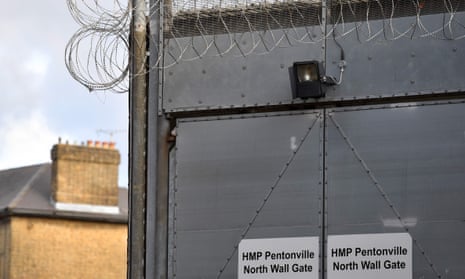Homeless ex-prisoners are significantly more likely to reoffend than those living in housing, in what charities have described as a “merry-go-round” in which people are “swept into prison and then dumped back on to the streets”.
Data obtained from the Ministry of Justice (MoJ) under a freedom of information request showed that out of all adult prisoners released in 2016, 67% of those who slept rough or were otherwise homeless went on to commit another crime within a year.
For those living in “unsettled” or temporary accommodation, the rate of reoffending was also higher, at 54%, compared with 43% for those who had either a permanent home or short-term supported housing.
Andrew Neilson, the campaigns lead at the Howard League for Penal Reform charity, described accommodation as integral to “staying on the straight and narrow”, alongside employment and support from family members or friends.
“Prisons are being used for people who are too poor and too fragile to sort their lives out,” he said. “But instead of us providing support, we’re spending billions each year policing them, criminalising them and incarcerating them.”
Phillip, a formerly prolific offender with a two-decade history of offences relating to burglary and drugs, was homeless on several occasions after being released from custody.
“I’d have to sofa surf with people I knew, but that pushed me back into old habits being around the same people,” he said.
“If I had come out and gone into a proper place to stay away from all that, I could’ve started fresh and done better.”
He said he was not “proud of” his past but insisted that after he began receiving support in 2017 from the Nacro substance misuse project, which provides residential recovery schemes for men with addictions to drugs and alcohol, he broke his addiction and rebuilt relationships with his family members.
Matt Downie, the director of policy at the homelessness charity Crisis, said: “It really is a predictable and cyclical problem where really the answer is just to make sure that people have accommodation and support.
“That would save the prison estate time and money, it would certainly save society the problems of criminal behaviour and for individuals caught up in that, we’d have a chance of resolving their issues and resolving their homelessness for good.”
In 2016, 27, 209 adult offenders released from custody were recorded as having settled accommodation, while 4,632 were recorded as homeless and 2,815 recorded as having “unsettled” accommodation.
The accommodation status of a further 24,967 ex-prisoners – of whom 51% reoffended within a year – was not known. This category is likely to be contentious and is thought to also mean sleeping rough or otherwise homeless.
Last August, concerns were raised over the number of ex-offenders likely to be sleeping rough after MoJ figures revealed that more than 100,000 prisoners left detention for unsettled or unknown accommodation over the previous three years. For people who were released from prison into bail accommodation, probation accommodation or accommodation provided by the Home Office Immigration Enforcement Service – totalling 1,972 – the reoffending rate was 43%.
The Homelessness Reduction Act, which came into force in October 2018, puts an obligation on prison and probation services to refer prison leavers to local authorities if they are at risk of homelessness.
However, charities have pointed out that this is often just a transfer of information rather than a resolution – with many single homeless people deemed “intentionally” homeless because they had been in prison.
Lindsay Ryder, director of housing and wellbeing at Nacro, said urgent government investment was needed to ensure plans were in place before prisoners left custody.
“We cannot afford for them to be held back by homelessness, a lack of essential medication or health support, a lack of ID or access to sufficient money, as these are essential basics required for people to successfully reintegrate back into our local communities,” she added.
A spokesperson for the MoJ said: “The first step to reducing reoffending is making sure everyone leaving prison has access to secure and stable accommodation.
“That is why we are spending an extra £22m a year helping offenders stay off the streets, and have placed a new duty on governors to alert councils if someone leaving their prison is at risk of homelessness.
“We’re also helping vulnerable former prisoners find stable accommodation through a £6m pilot scheme at Leeds, Pentonville and Bristol prisons.”
